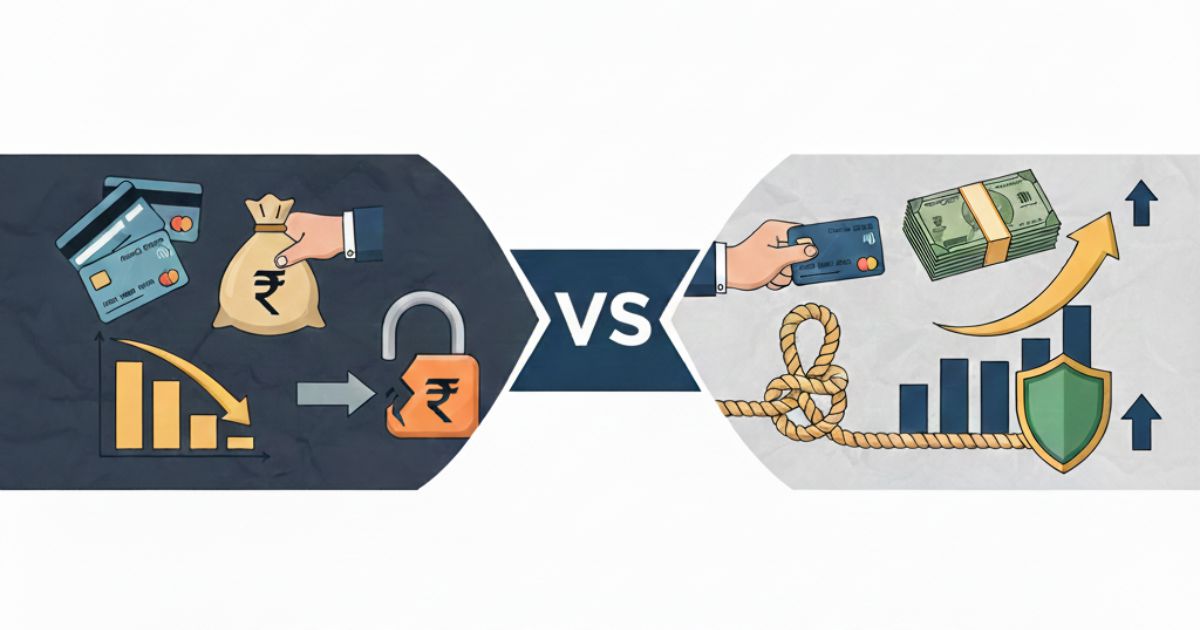· RBI Guidelines · 8 min read
Understanding Your Rights as a Borrower in India
Learn about your rights as a borrower in India, including fair lending practices, dispute resolution, and protections under RBI and banking regulations.

In India’s rapidly evolving financial landscape, borrowers often enter loan agreements without fully understanding their legal rights and protections. This comprehensive guide outlines the essential rights every borrower in India should know, empowering you to make informed financial decisions and protect yourself from potential exploitation.
Regulatory Framework Protecting Indian Borrowers
Reserve Bank of India (RBI) Guidelines
The Reserve Bank of India serves as the primary regulatory authority safeguarding borrower interests:
Fair Practices Code: All RBI-regulated financial institutions must adhere to the Fair Practices Code, which mandates transparency, fair treatment, and ethical collection practices.
Customer Service Guidelines: The RBI regularly issues directives to ensure financial institutions maintain certain standards of customer service, including response time for loan applications and complaint resolution.
Charter of Customer Rights: This RBI framework establishes five fundamental rights for all financial consumers: right to fair treatment, transparency, suitability, privacy, and grievance redress.
Consumer Protection Act, 2019
This legislation provides additional safeguards for borrowers:
Definition as consumers: The Act explicitly recognizes borrowers as consumers of financial services, entitled to all consumer protections.
Unfair contract terms: The law protects borrowers from one-sided, unfair contract terms that create significant imbalances in parties’ rights and obligations.
Consumer dispute redressal: The Act established a three-tier consumer dispute resolution system: District, State, and National Commissions.
Information Technology Act, 2000 (As Amended)
This legislation has important implications for digital borrowing:
Digital signature validity: Electronic loan agreements with proper digital signatures have legal standing equivalent to physical documents.
Data protection provisions: The Act includes safeguards regarding collection and usage of personal financial information.
Remedies for unauthorized access: Provides recourse if your financial data is accessed or used without authorization.
Pre-Loan Rights: Before Signing the Agreement
Right to Information and Transparency
Before entering any loan agreement, you are entitled to:
Clear disclosure of terms: All fees, charges, interest calculations, and penalties must be disclosed in clear, understandable language.
Loan comparison information: Lenders must provide sufficient details to allow you to compare with other loan products.
Processing fee limits: The RBI has established guidelines regarding maximum permissible loan processing fees.
Complete documentation: You have the right to receive a copy of all loan documents you sign, including the loan agreement, in your preferred language.
Right to Fair Marketing Practices
Protections against misleading loan promotions:
No deceptive advertising: Lenders cannot use misleading statements or hide significant terms in fine print.
Clear representation of interest rates: Annual Percentage Rate (APR) must be clearly displayed, not just flat interest rates that appear deceptively low.
No unsolicited loan offers: Financial institutions cannot issue pre-approved credit cards or increase credit limits without explicit customer consent.
Right to Fair Assessment
During the loan application process:
Non-discriminatory evaluation: Lenders cannot discriminate based on gender, religion, caste, marital status, or similar factors unrelated to creditworthiness.
Credit score access: You have the right to know if your loan was rejected due to your credit score and to receive information about that score.
Reasonable processing time: Lenders should communicate expected processing timelines and adhere to them.
Rights During the Loan Term
Right to Statement of Account
Throughout your loan tenure:
Regular statements: Lenders must provide periodic statements showing amounts paid toward principal and interest, remaining balance, and upcoming payments.
Loan history on demand: You can request a complete statement of your loan account at any time (potentially with a nominal fee).
Immediate receipt notification: You must receive confirmation of any payment made toward your loan.
Right to Fair Interest Practices
Protection against unfair interest calculations:
Interest calculation transparency: The methodology for interest calculation must be clearly disclosed and consistently applied.
MCLR/external benchmark compliance: For floating rate loans from banks, interest rates must be linked to the Marginal Cost of Funds based Lending Rate (MCLR) or external benchmarks as per RBI guidelines.
Timely rate adjustments: When benchmark rates decrease, banks must pass these benefits to borrowers within the timeframe specified by regulatory guidelines.
Right to Data Privacy
Safeguards for your financial information:
Confidentiality of information: Lenders must maintain confidentiality of your personal and financial data.
Limited information sharing: Your data can only be shared with third parties with your explicit consent or as required by law.
Credit information reporting: While lenders report to credit bureaus, they must ensure accuracy of the information provided.
Repayment and Foreclosure Rights
Right to Prepayment/Foreclosure
Your options for early loan settlement:
No foreclosure penalties on floating rate loans: Banks cannot charge prepayment penalties on floating rate term loans to individual borrowers (as per RBI directive).
Prepayment charges caps: For loans where prepayment charges are permitted, the RBI has established maximum allowable charges.
Partial prepayment options: Most lenders must allow you to make partial prepayments to reduce your principal and future interest obligation.
Right to Loan Account Closure
Upon completing repayment:
Timely document return: Original property documents held as security must be returned within a reasonable timeframe after full repayment (typically 30 days).
No-dues certificate: You are entitled to receive a loan closure certificate confirming full settlement of your obligations.
Lien removal: Any liens placed on your assets must be promptly removed after complete repayment.
Rights Regarding Loan Default and Recovery
Protection Against Harassment
If you face difficulty with repayment:
Dignified treatment: Debt collection must be conducted with dignity and respect for borrowers, without harassment or intimidation.
Reasonable contact hours: Collection agents can only contact you during specified hours (generally 7am to 7pm).
No public humiliation: Lenders cannot shame borrowers publicly or disclose loan details to uninvolved third parties like neighbors or colleagues.
Right to Notice and Response
Procedural protections:
Prior notice requirement: Before classifying a loan as non-performing or initiating recovery, lenders must provide adequate written notice.
Opportunity to regularize: You must be given reasonable opportunity to address payment issues before severe actions are taken.
Proper authorization: Recovery agents must carry proper identification and authorization from the lending institution.
Rights Under SARFAESI Act
For secured loans:
60-day notice period: Before proceeding under the SARFAESI Act for secured assets, lenders must provide 60 days’ notice.
Right to object: You can raise objections to the measures mentioned in the possession notice.
Asset valuation transparency: You have the right to know how your secured assets were valued during the recovery process.
Digital Lending Rights
RBI Digital Lending Guidelines
In response to the growth of digital lending:
Direct disbursement: Loan disbursements and repayment must flow directly between borrowers and lenders without passing through third-party accounts.
Cooling-off period: Digital loans must offer a cooling-off/look-up period during which borrowers can exit without penalty.
Algorithm transparency: Lenders must disclose to borrowers the key factors affecting the algorithmic lending decisions.
Mobile App Lending Protections
For loans obtained through mobile applications:
Data access limitations: Apps can only access specific permissions necessary for the lending service.
Purpose disclosure: Clear disclosure of how collected data will be used.
Verified applications: Use only RBI-regulated entity apps or their verified partners.
Special Borrower Categories
MSME Borrower Rights
Small business borrowers have additional protections:
Timely sanction communication: Banks must convey credit decisions to MSME loan applicants within specified timeframes.
No collateral requirement: Loans up to ₹10 lakhs to MSMEs do not require collateral under the CGTMSE scheme.
Restructuring framework: The RBI provides guidelines for one-time restructuring of MSME loans in distress.
Rights for Senior Citizens and Differently-Abled
Enhanced accessibility rights:
Doorstep banking services: Many loan-related services must be offered at the doorstep for senior citizens and differently-abled persons.
Priority service: Banks should provide priority service for these categories in branches.
Specialized assistance: Additional help must be provided for completing documentation and understanding terms.
Grievance Redressal Mechanisms
Three-Tier Complaint System
When your rights are violated:
First level: Initially file complaints with the designated grievance officer at the lending institution.
Second level: If unsatisfied, approach the institution’s internal ombudsman (if available).
Third level: File complaints with the RBI Ombudsman under the Integrated Ombudsman Scheme, 2021.
Banking Ombudsman Scheme
The RBI’s specialized grievance mechanism:
Cost-free service: Filing complaints with the Banking Ombudsman involves no charges.
Defined timeframes: The scheme establishes clear timelines for complaint resolution.
Binding decisions: Ombudsman decisions are binding on banks if accepted by the complainant.
Legal Remedies
Additional avenues for grievance redressal:
Consumer courts: File complaints with the appropriate Consumer Disputes Redressal Commission.
Civil courts: For matters beyond the jurisdiction of specialized forums.
Police complaints: In cases involving threats, harassment, or privacy violations by recovery agents.
Protecting Your Borrower Rights
Documentation Best Practices
Safeguard your interests by:
Maintaining comprehensive records: Keep copies of all loan-related documents, payment receipts, and communications.
Written communication: Conduct important loan-related communications in writing whenever possible.
Reading before signing: Carefully review all terms and conditions before signing any documents.
Regular Monitoring
Stay vigilant through:
Statement verification: Regularly check loan statements for accuracy in interest calculation and payment application.
Credit report review: Periodically check your credit report to ensure accurate reporting of your loan status.
Interest rate changes: For floating rate loans, monitor benchmark rate changes to ensure timely adjustments to your loan.
Education and Awareness
Empower yourself through:
Financial literacy resources: Utilize educational materials provided by the RBI and other financial authorities.
Awareness campaigns: Participate in financial literacy programs conducted by various institutions.
Rights literature: Familiarize yourself with resources like the RBI’s “Charter of Customer Rights.”
Understanding your rights as a borrower is essential in India’s complex financial ecosystem. While regulatory authorities like the RBI have established robust frameworks to protect borrowers, the practical implementation of these protections ultimately depends on informed and vigilant consumers.
By familiarizing yourself with these rights, maintaining proper documentation, and knowing the appropriate grievance redressal mechanisms, you can ensure fair treatment throughout your borrowing journey. Remember that financial institutions are service providers, and as their customer, you deserve transparency, respect, and ethical treatment at every stage of the loan lifecycle.



